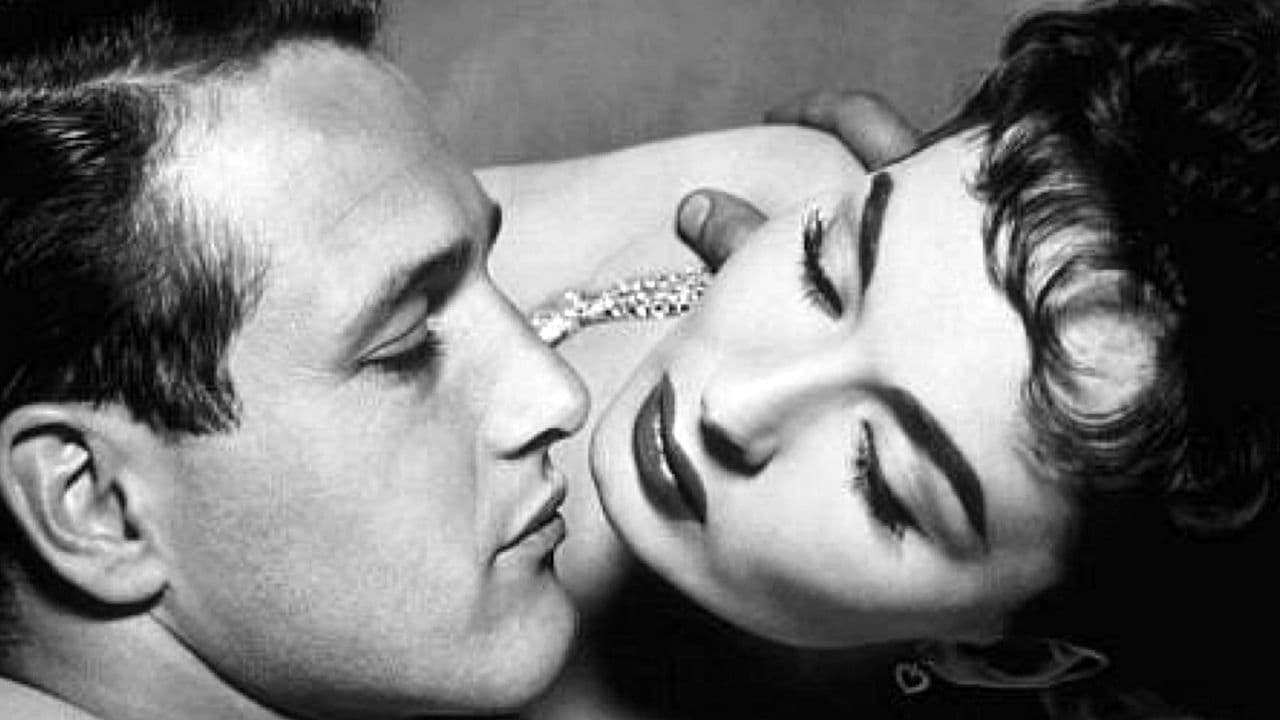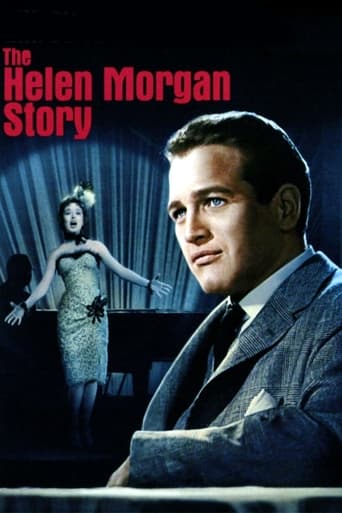

Self-important, over-dramatic, uninspired.
... View MoreBrilliant and touching
... View MoreBoring, over-political, tech fuzed mess
... View MoreThe plot isn't so bad, but the pace of storytelling is too slow which makes people bored. Certain moments are so obvious and unnecessary for the main plot. I would've fast-forwarded those moments if it was an online streaming. The ending looks like implying a sequel, not sure if this movie will get one
... View MoreThe movie doesn't come up to the height of Love Me or Leave Me. The reviews of the day called it a soap opera and it has that feeling. Love Me or Leave had a better script and a better cast. The reason that Blyth was miscast is the same reason that they didn't use her voice (Gogi Grant dubbed over all the singing). Blyth doesn't have the emotional heft to match the torch-singing quality that is necessary for the part or necessary to match the dubbed singing by Gogi. A more powerful actress would have made the scenes with her and Newman much better. His acting ability stands out of course, but it is mostly wasted on this script. Who would have been perfect for this?...easy...Judy Garland. She may have looked to old for the part at this point...she didn't have the beauty of Blyth...who was a good singer in her own right...but not for this. Blyth looked like Morgan...and she was fantastic in Kismet...perfect. I had the pleasure of meeting her about 10 years ago and shared some coffee with her and her husband. She's a lovely lady. This movie is just lacking.
... View MoreDuring the wild and reckless 1920s, pretty small-town girl Ann Blyth (as Helen Morgan) gets her start as a singer for sex-minded bootlegger Paul Newman (as Larry Maddox). Although deserted after a "one night stand" in Chicago, Ms. Blyth hooks up with Mr. Newman for the long haul. "The customers drink more when they cry," advises Newman, and Blyth becomes a successful "torch singer" (one who sings the blues over lost loves). For publicity and profit, Newman enters Blyth in a "Miss Canada" beauty pageant, although she is not Canadian. Blyth is kept out of jail by kindly lawyer Richard Carlson (as Russell Wade), who becomes the another significant man in her life...Gogi Grant sings beautifully for Blyth, but one wonders why the actress wasn't allowed to sing for herself. Her style more closely fit the real Helen Morgan's range. Morgan was a big star during the 1920s and 1930s and anyone listening to the radio in 1957 would also be familiar with Ms. Grant's hits - and the titular heroine's real ending. Moviegoers in 1957 must have been puzzled. Blyth is given a role to showcase her acting skills, but holds back; she'd be least haggard looking alcoholic on skid row. Newman had recently been making progress, but appears to still be finding his way. Shadowy scenes staged by director Michael Curtiz and photographer Ted McCord are a strength.***** The Helen Morgan Story (10/2/57) Michael Curtiz ~ Ann Blyth, Paul Newman, Richard Carlson, Gene Evans
... View MoreWith a song in her heart, Helen Morgan was one of the top Broadway divas of the pre-Ethel Merman era. By the 1950's, such chanteuses as Jane Froman, Lillian Roth, Blossom Seeley and Ruth Etting had their stories told on film, so it was inevitable that someone did Morgan's. Polly Bergen did this story for TV, but Ann Blyth, the lovely soprano of "Rose Marie" and "The Student Price", got the movie-and got dubbed by a recording star-Gogi Grant. In those operettas, Blyth totally tossed out the memory of Veda from "Mildred Pierce", but by 1957, musicals were slowly being phased out on the big screen. Perhaps formula stories like this (plus plenty of musicals filmed for TV) were responsible, as more and more they reeked of familiarity. With this one, the formula combined with two recent similar stories, "The Lillian Roth Story" ("I'll Cry Tomorrow") and "The Ruth Etting Story" ("Love Me or Leave Me") to glue its plot together.Lillian Roth fought alcoholism and Ruth Etting was at the mercy of a mobster, and here, Helen Morgan is both. This provides plenty of drama, but unfortunately it is mashed together in an unconvincing manner that the other films managed to dramatize. Here, Paul Newman is the duplicate of "Love Me or Leave Me's" James Cagney. Unfortunately, as magnetic as Newman is, his character is weakly developed and lacks the heart Cagney displays in his Oscar nominated role. Richard Carlson is good as the equivalent to Cameron Mitchell's "Love Me or Leave Me" character, a basic good guy stuck in a loveless marriage. It's all predictable what happens in both relationships.As for Blyth, she does very well exploring Morgan's downfall and in spots, really captures her changing image. Gogi Grant's vocal range is appropriate to the downfall as well, and at times has voice mannerisms close to Judy Garland whom it is rumored was a contender for this role which may have been too close to home. But what fails to come through in her performance is the ambition, overwork and despair that would drive her to become a lush.There are many great standards and of course the two songs from "Show Boat" which have become her signature songs. Unfortunately, they are only heard as cabaret numbers, not shown being performed in the Broadway production or shown being filmed for the magnificent 1936 film version. In black and white more suited for early TV, the film lacks the impact the same story would have had if it was made 15 years before, as do many films of that era set in the 1930's. Then, the ending comes along, repeating one seen in one of the musical bios I discussed earlier, and on comes a major let down and lack of originality. Blyth shines, however, in a drunk scene in a New York dive where she badly sings along to a recording of herself on the radio.
... View MoreThe 1950s gave us such great musical biographies and "The Helen Morgan Story" is another one of them.Ann Blyth is fabulous as she conveys the tormented life of this great performer. She made a success of herself in show business but threw it all away to alcohol and the inability to choose the right man for herself. Blyth was fabulous in the lead. It's a part that will remind you of Doris Day's Ruth Etting in "Love Me or Leave Me," or Susan Hayward in "I'll Cry Tomorrow."With those blue eyes, Paul Newman was phenomenal here. He was born to play the part of Larry, the man who loved Morgan deeply, but he himself said that he came first. Her other lover, played by Richard Carlson, who gave a very weak performance in the role.The songs are belted out and often the voice sounded somewhat like Lena Horne-Horne made many of the Morgan songs quite popular as well.Alan King appears in a straight dramatic role as Larry's associate. Cara Williams, who would be nominated for best supporting actress the following year in "The Defiant Ones," was good as his girlfriend and there is a stopping scene by Virginia Vincent, who commits suicide. Vincent was often seen on television's "The Untouchables" in the '50s as well.The movie does a great job of depicting Morgan's torment and success. Many of the dames of the period got themselves involved with gangsters and liquor and Morgan was no exception.
... View More